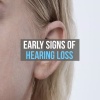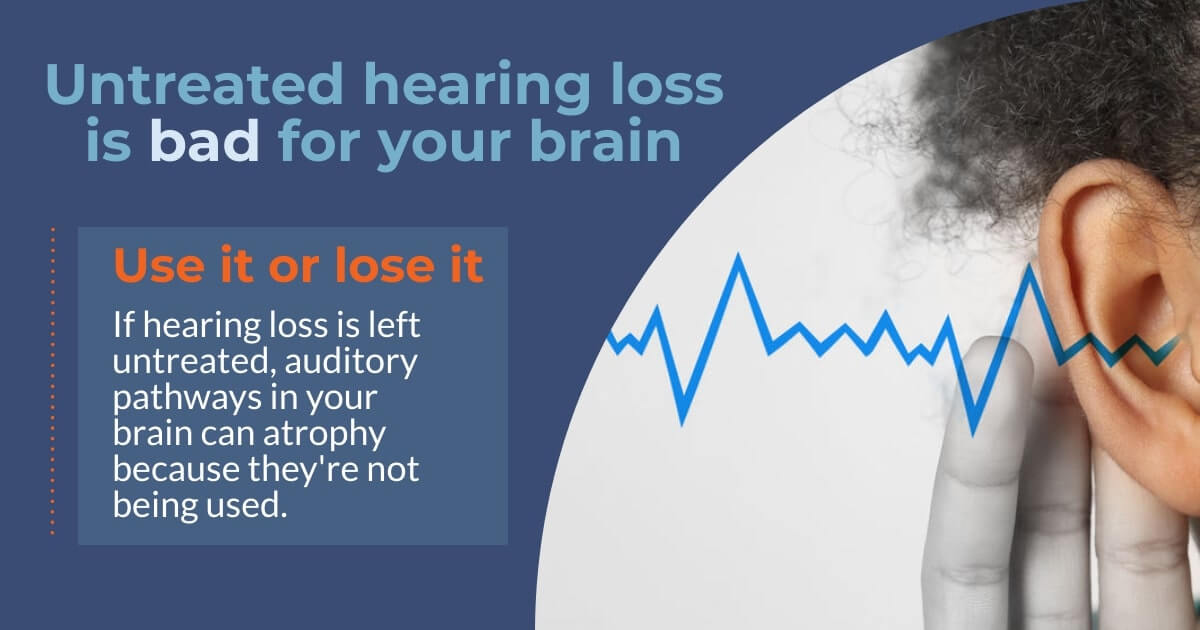Hearing loss is often a sneaky thief. It can creep up on you gradually, stealing your hearing in such small increments you suddenly find yourself straining to understand conversation and missing some of your favorite sounds.
How can you tell if you have hearing loss? Hearing loss symptoms depend on the type and severity. Only a qualified hearing health professional can tell you for sure, but here are five signs you may not be hearing your best.
1. Consonant sounds are hard to hear
'Did you say show or throw?'
If you’ve lived long enough to develop presbycusis, or age-related hearing loss, you may have lost your ability to hear high-frequency sounds. In speech, that translates to the consonant sounds S, F, Th, Sh, V, K, and P. These sounds are important because they help you distinguish between like-sounding words—for example, “show” and “throw” or “keep” and “peep.”
As a result, you may misunderstand important parts of the conversation and respond inappropriately or think people are mumbling. In other words, you can hear, but not understand.
2. The birds have seemingly disappeared
Take a moment and think—when was the last time you heard birds singing or crickets chirping? Do you hear the car’s turn signal when it’s blinking? Are you having trouble hearing your wife or grandchildren when they speak? (Good news: Hearing aids help birders.)
These higher pitched sounds and voices register at frequencies of 2,000 Hz or higher, which those with high-frequency hearing loss have trouble hearing.
3. Understanding conversation in crowded places is increasingly difficult
Another symptom of high-frequency hearing loss is the inability to distinguish speech in noisy environments. As a result, you may find yourself avoiding social situations like family get-togethers or impromptu celebrations with friends at local gathering places where you’re forced to concentrate on understanding the conversation.
4. You strain to listen—and it’s exhausting
If you find you're straining to listen to the conversation and are more exhausted than usual at the end of the day, you may have listening fatigue. Like a fading radio state or bad phone connection, you have difficulty following the conversation.
Most people are surprised to learn that hearing is a brain activity. When your auditory system is compromised, it takes a lot more effort for your brain to process the sound it receives from your inner ear. In effect, the signal is broken.
More: Hearing loss is exhausting? I was skeptical until I took a hearing test
5. Your ears ring
The CDC estimates more than 50 million people suffer from some degree of tinnitus, making it one of the most common health conditions in the country.
Both age-related hearing loss and noise-induced hearing loss can cause tinnitus, a condition also known as ringing in the ears. In these two situations, researchers believe tinnitus may be the brain’s way of filling in the missing frequencies it is no longer receiving from the auditory system.
What’s the solution?
High-frequency hearing loss is typically a type of sensorineural hearing loss, which means hair cells in the inner ear have been damaged. These hair cells are responsible for converting sounds into signals and sending them along the auditory nerve to the brain for interpretation. In addition to age, sensorineural hearing loss has many causes, including noise exposure, disease, infection or genetics.
Although sensorineural hearing loss isn’t curable, it can be treated with hearing aids or cochlear implants. Diagnosis and treatment is important because untreated hearing loss has been linked to mental health conditions such as anger, depression, anxiety, isolation, frustration, loneliness and decreased cognitive function.
Seek help from a hearing healthcare professional
Today’s hearing devices are sophisticated marvels of technology, with the ability to amplify the high frequencies you may be missing without amplifying the low frequency sounds you hear just fine.
A hearing healthcare professional can evaluate your hearing and help you determine which hearing device is best for your hearing loss, lifestyle and budget.
Even if you aren’t experiencing any of these signs of hearing loss, don’t wait for a problem to occur. Treat your hearing health like you would vision or overall physical health and schedule annual hearing examinations with a professional you trust. Visit our online directory of consumer-reviewed hearing clinics to find a provider near you.
The above is the interpretation of Why Hearing Loss Makes Conversations Exhausting provided by Chinese hearing aid supplier Shenrui Medical. Link https://www.srmcm.com/Blog/Why_Hearing_Loss_Makes_Conversations_Exhausting.html of this article is welcome to share and forward. For more hearing aid related information, please visit Blog or take a look at our Hearing aids products

















